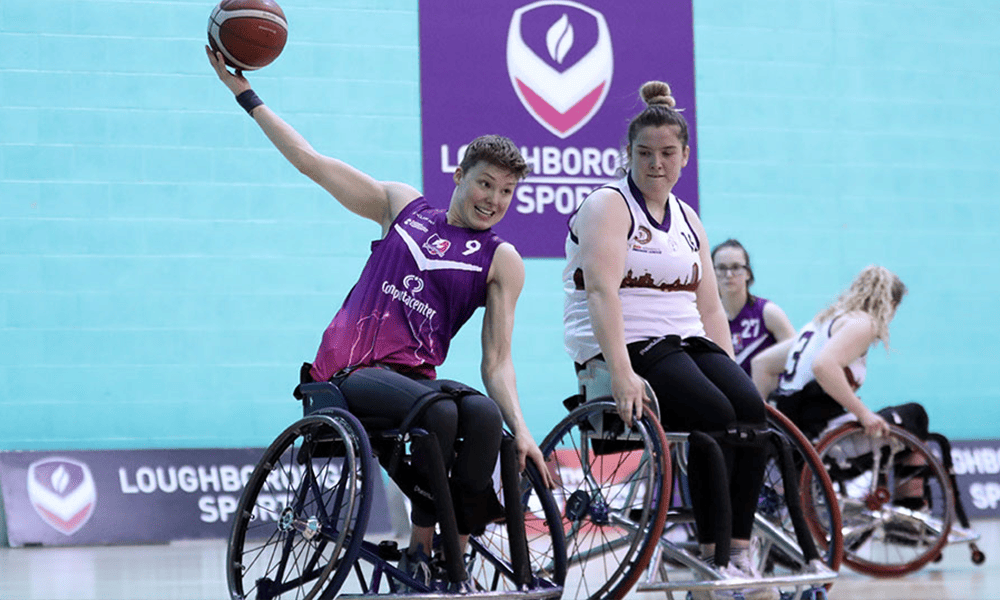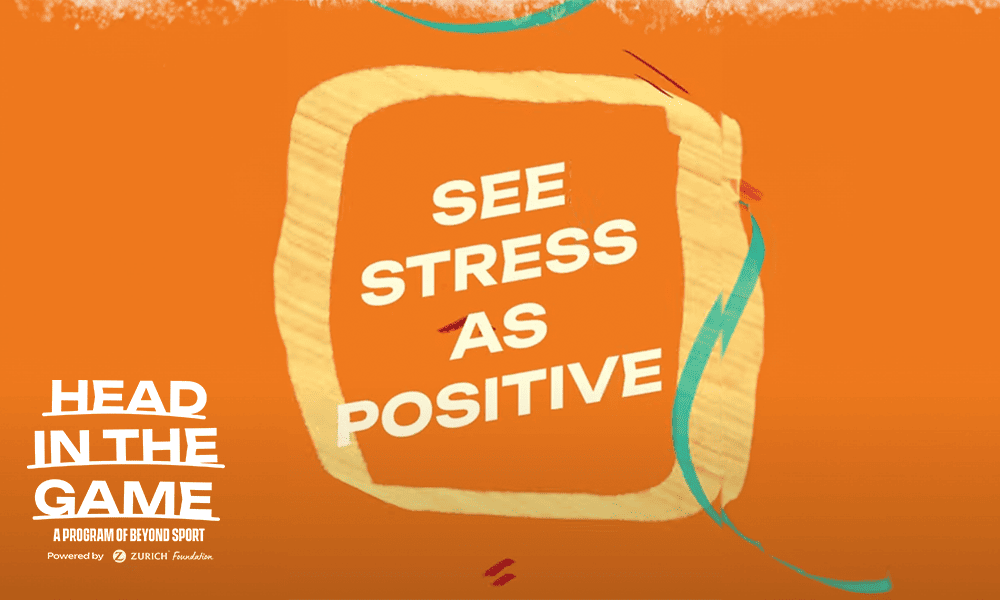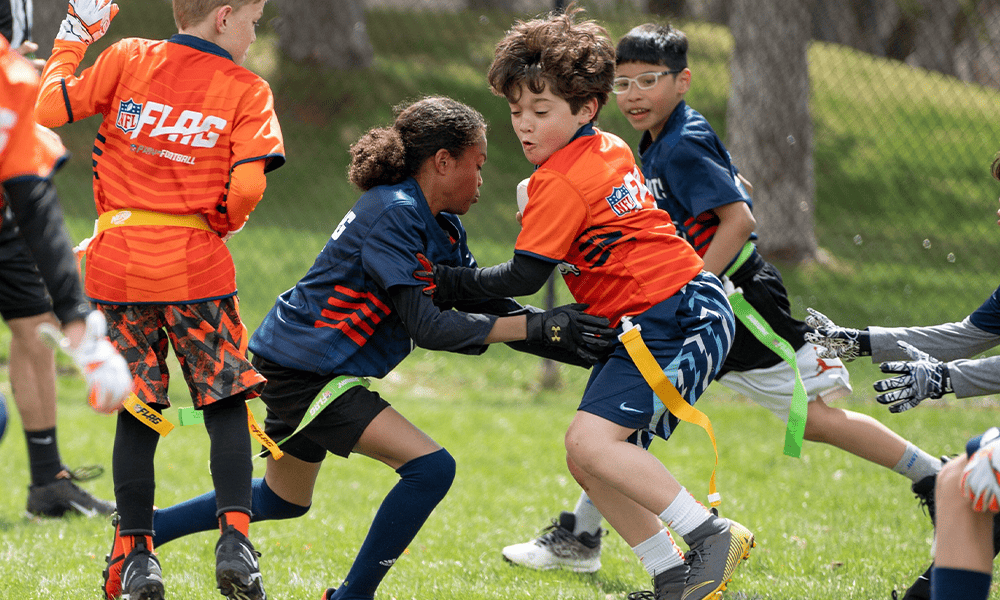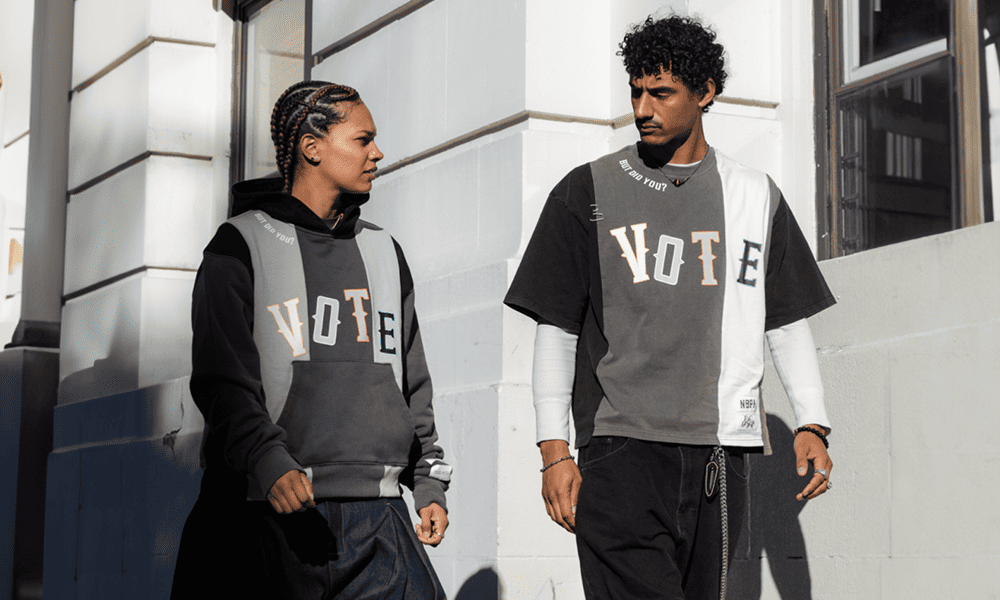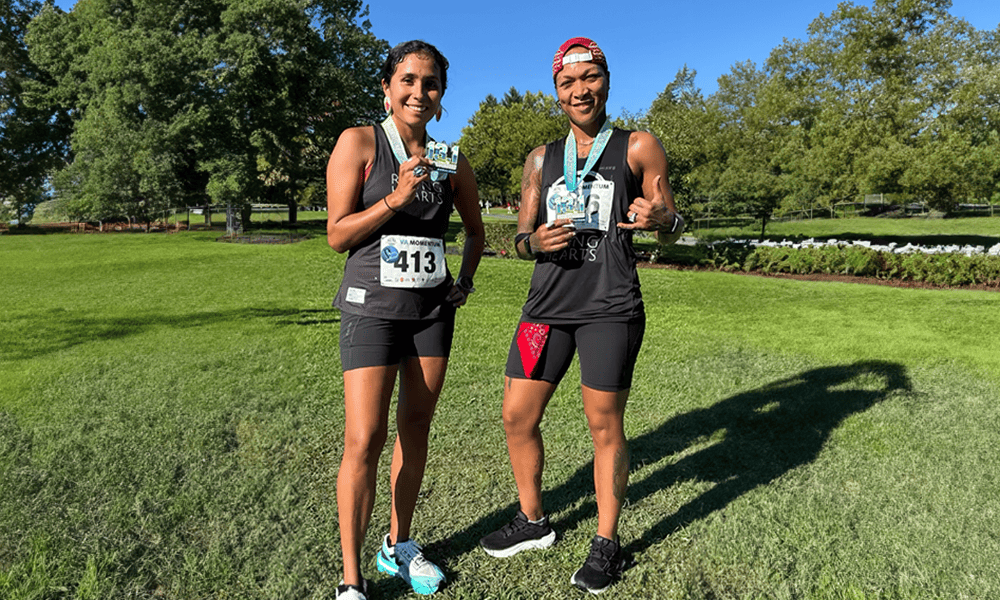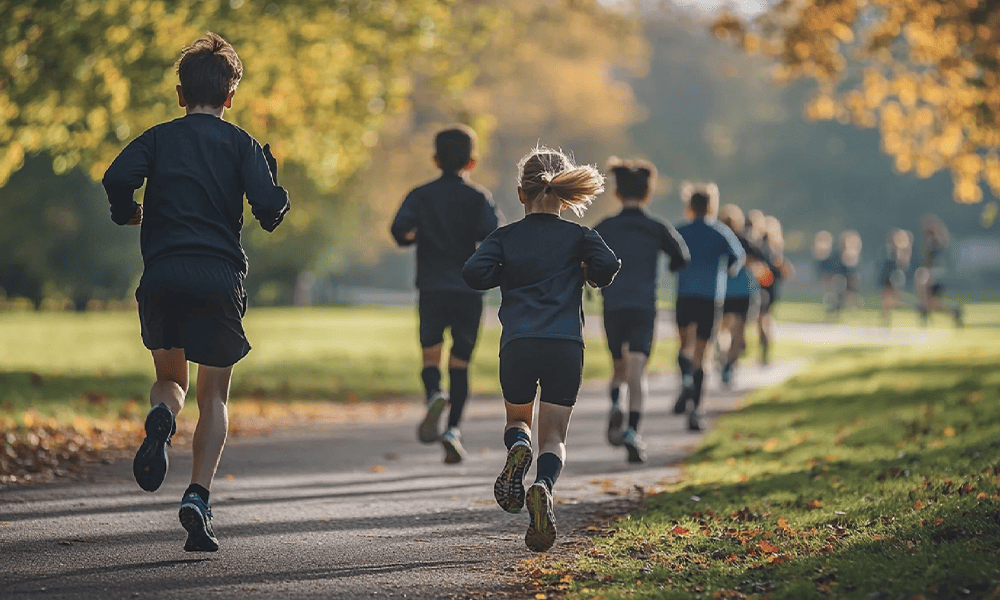April 6, 2024
Each year on April 6, the global community comes together to celebrate the International Day of Sport for Development and Peace (IDSDP). Since its 2014 inception by the United Nations, the day has provided a platform to highlight the many ways that sport can contribute to building a healthier, happier, more inclusive world.
For us at Beyond Sport, this is a day that speaks to the heart of our work, using sport strategically and with intention to positively impact communities globally. In honor of the day, our Executive Director Fred Turner, Development Director Carly Heinz, Senior Grants and Programs Manager Abby West and Grants and Programs Manager Claudia Larrea shared on how sport not only provided a strong grounding in their own lives, but also a passion for all its possibilities to promote peaceful and inclusive societies.

Let’s start close to home, what has the value of sport been in your own life and in guiding your path?
Fred:
I started football as young as I can remember, playing for fun and then through school and beyond. We were pretty successful, but that wasn’t really what it was about. It was about the friendships and community. I was a massive Arsenal fan from a very young age and so being at games with my dad was also a real thing for me. The power of sport – it’s a bit of a cliche, isn’t it? But that’s my experience: it really created community at a time that I needed it. I was actually better at tennis than I was at football, but I gave that one up. I just found I wanted more of that community that came through team sport. It makes sense to me now, as I look back on my career so far, that the most significant moments of achievement that stay with me are when we’ve shared success, versus something that feels wholly about something I’ve done.
Claudia:
It’s through a youth community center that I learned to be me. I was raised alone by a single immigrant mom. I spent a lot of time on my own. So teachers and coaches became my mentors. When you interact mostly with adults, you may lose some peer social skills – I feel I was basically a mini grownup at 12. When I finally got to hang out at the community center as a sixth grader, I was like “Ok! Kids are being kids!” It allowed me to do that, but also to feel the impact of adult mentorship. I love the work I do now and feel like it’s been an intimate part of my life and experience.
Carly:
When I was younger, I always felt like I never entirely fit in. I learn differently, so it was really hard for me to pay attention in school, and I struggled with coursework. But when I went on the tennis court, it was like…wow, I can focus on one thing for hours. It relieved me of having to think about who I was or how I was struggling.

It was amazing to have something I could really excel at. I’m not sure I would have gotten into my small liberal arts college without being a tennis player, actually! But that turned out to be one of the most formative experiences of my life, because I wound up really excelling in schoolwork there. So sport also brought me that confidence I was missing in other areas of my life. It leads you to amazing places that you don’t expect, I think, a lot of the time.
Abby
I have played a lot of sports, but I’m not the sportiest of people. I am quite a big sailor, though – I used to live near the sea, so I always sailed growing up. I used to compete at a national level in that, and a lot of my time at university was taken up with sailing. But that’s where I got involved in the running of things. I used to run the student sailing club, then the national association of student sailing. And I think that’s when I realized I actually prefer organizing and administration…and here I am today!
Let’s extend this to your work. What moments or programs at Beyond Sport have really resonated with you as community builders?
Abby:
It’s really the small ones for me. For example, there’s a football group in London in a low income community that hosts a lot of migrant families. The kids don’t have many opportunities outside of school, because often their parents don’t think it’s safe for them on the streets. So local teachers set up a youth club in a tiny community center with a sports hall not much bigger than a family living room. Only about four of the kids can play on a team at any given time, but they absolutely love it. It may be tiny, but it’s also located right underneath Wembley Stadium, the UK’s national football stadium.

None of these kids had ever been to a game, but we helped them apply for NFL Foundation UK funding, and we’ve funded them for two years now to deliver the NFL Flag program. It’s big income for them and allows them to do something completely different. We actually managed to get the kids tickets to the 2022 Wembley NFL game and they had the BEST time. It’s groups like that that really remind you of why we do this kind of work.
Claudia:
It’s got to be the Head in the Game coaches training we held last year as part of our youth mental wellbeing program in the US with Z Zurich Foundation. Magic really happened there. We had two different expert facilitators: one focused on self-awareness and group relationship building and the other on LGBTQI+ inclusion. For some coaches, that second session was tough – it was really tough. But I saw some amazing conversations happening. At first I’d hear “Oh well I think this, because this is how I grew up,” and then I’d hear “Well this is my experience right now” in response. You saw change happening in front of your eyes. It was so incredible to see that transformation in just six hours, so imagine the impact those coaches have on their athletes over a season. That made me really go “This is why I do this.”
Carly:
One of the challenges of working in fundraising is that you’re always one or two steps removed from what’s happening on the ground. So I really live for the stories when I feel I’ve made a direct impact. Last year, we were designing employee engagement activities for one of New Balance’s grant summits, and I suggested the team fill back-to-school backpacks for children who had experienced forced migration, also popping in some handwritten notes. So they did that, and about 1000 personalized backpacks went out to organizations working with refugees and asylum seekers. A lot of the kids don’t get gifts – they don’t get new gifts for sure – and they definitely don’t get notes from people saying “This is for you” or “We hope you have a great year at school.” We got some amazing stories back and it definitely brought more than one tear to my eye.
In your opinion, how is Beyond Sport working to do things differently to make a positive impact?
Abby:
We’re not a traditional funder. We’re willing to work with groups and support them to develop policies or adjust their governance structures so that they meet our funding criteria. We give grants to organizations that some funders wouldn’t, because we look to develop potential. That’s where the greatest impact often lies, with those smallest groups. But it goes both ways, right? There are big corporations who would never be able to find or make the direct link to grassroots organizations without us. Likewise, some of the groups that we fund would never get money from a large global brand without our support to put monitoring and evaluation and governance structures in place. So I do like that we can act as that intermediary and unlock a lot of money for the sector by being able to speak the language of corporations and translate that for smaller organizations. I like being the middle link!

Claudia:
I see myself as an advocate for our grantee organizations when we talk with our funders. I’m now in a role where I have the power to try and do things right, in a way that benefits and doesn’t burden them. And especially in a way that benefits their participants too!
Fred:
When we’re able to really target that change, and provide the support to an organization that needs it, it feels really good to know everyone’s winning. But our ambition isn’t to handle hundreds of millions of dollars. It’s very much about intention and direction. Our role is often to bring together unlikely combinations of people and to create a really impactful space for conversation and change. I like to think that everything that we do is based on authenticity, and when I think of our values and what resonates for me in what Beyond Sport does, it’s about being accessible and being adaptable to the needs of people and organizations.
In keeping with the IDSDP’s 2024 theme of ‘sport for the promotion of peaceful and inclusive societies’, Beyond Sport recognizes the transformational work that can happen when partners join together to spark and sustain social change. We’re proud to celebrate the power of sport to unite across divides today and every day!
